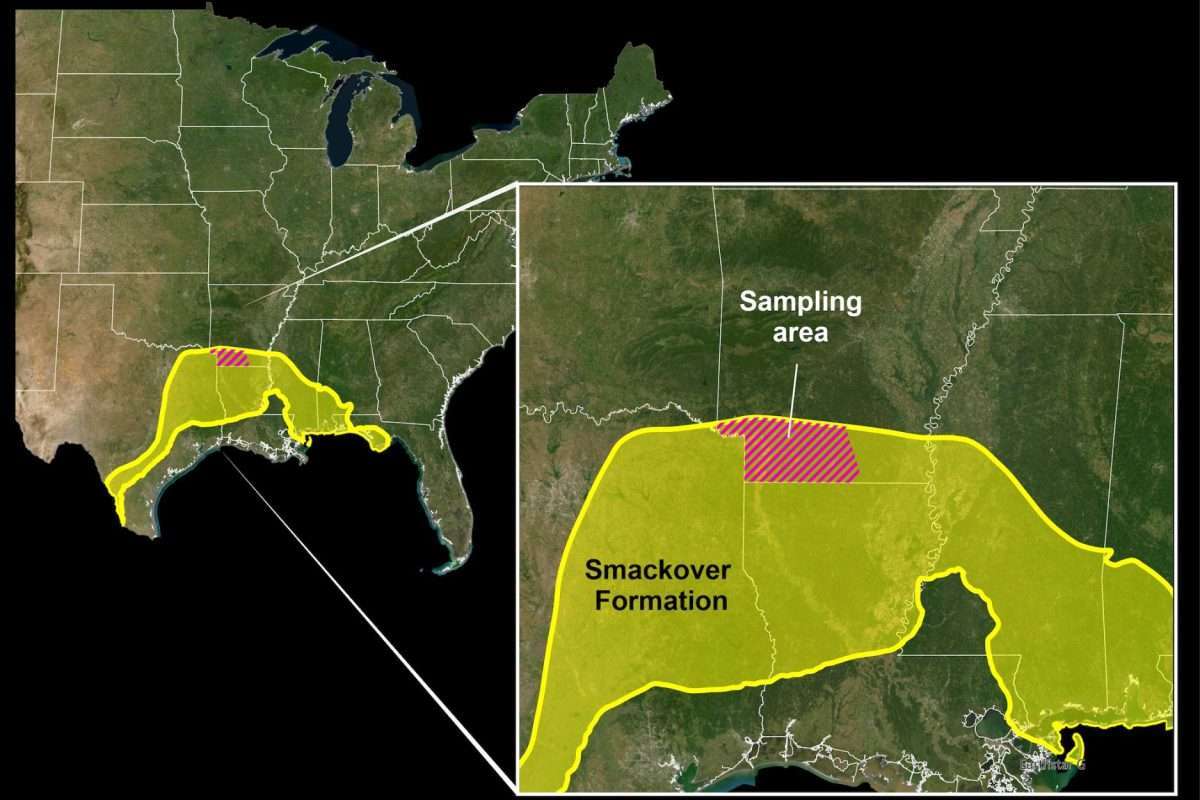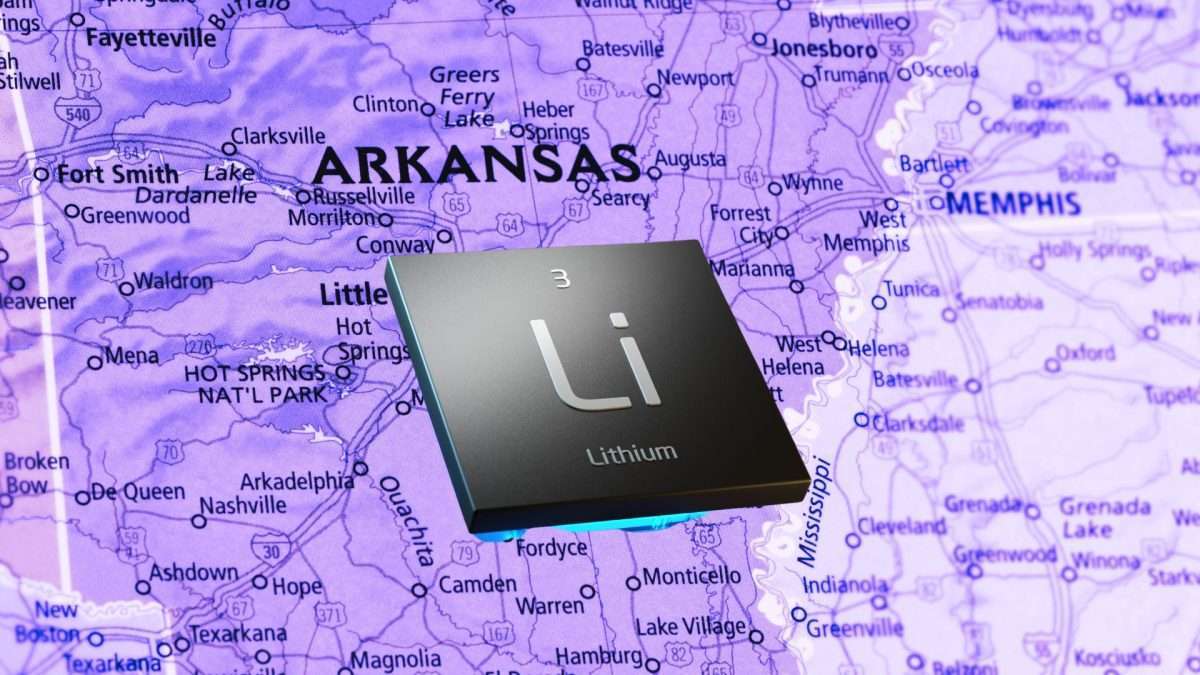Arkansas could be home to nearly 20 million tons of lithium, a critical electric vehicle battery metal, according to a study released this week by the U.S. Geological Survey (USGS).
Those lithium reserves, the USGS says, would be enough to meet nine times the forecasted global demand for lithium in EV batteries in 2030 — if the reserves prove to be commercially recoverable. At current market values, Arkansas’s estimated lithium reserves are worth hundreds of billions of dollars.
Arkansas’s lithium deposits are located in brines in the Smackover Formation, a geological region extending south into Texas and east into Florida.

The world’s largest lithium metal deposits exist in saltwater brines in Bolivia and Chile. Lithium is also found in hard rock deposits in countries like Australia and Canada, and in claystone, like in Nevada’s Thacker Pass.
If commercially recoverable, the Arkansas discovery would exceed those of the Thacker Pass, currently the third largest in North America, which recently received a major investment from General Motors.
Already, ExxonMobil — the world’s second-largest oil company — has begun drilling for lithium in the Smackover Formation, aiming to produce enough lithium to power over a million EVs each year by 2030. It’s one of several energy giants making big bets on the green energy transition.
Behind the scenes, scientists at the USGS used machine learning, a type of artificial intelligence, to compare brine samples from the Smackover Formation with historical data to develop a predictive model for lithium across the region.
The discovery is critical as the U.S. government and private sector are investing billions of dollars into developing domestic EV and EV battery industries. Through its critical materials industrial policy, the Biden administration hopes to reduce China’s dominance over the EV and EV battery industries. The stakes for U.S. energy independence are high and Arkansas’s lithium could play a decisive role.
Globely News covers the game changers transforming the worlds of business, sports, politics, and technology. From AI and electric vehicles to the rise of China and the NFL's next stars, we've got you covered.



